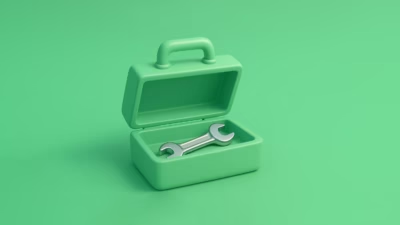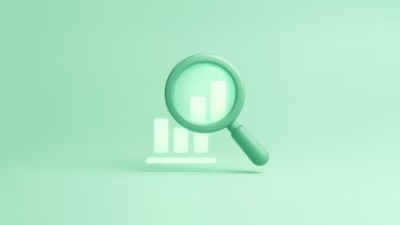You know that sinking feeling when you start Googling a new career path and it feels like you just opened a textbook mid-exam? That’s what happens to a lot of people when they first ask, “Is data science hard?”
Scroll through Reddit or watch a couple of YouTube videos, and suddenly you’re staring down a wall of buzzwords: neural networks, gradient descent, MLOps, Bayesian inference. Honestly, it can make you want to shut your laptop and go walk your dog. Or adopt one, just for the distraction.
But here’s the thing: data science isn’t hard in the way people think it is. It’s challenging, yes. Sometimes frustrating. Occasionally thrilling. But it’s not impossible, and it’s not reserved for math geniuses or ex-Googlers. It’s a job. A very learnable, real-world job with tasks, tools, coffee breaks, and the occasional bout of imposter syndrome.
So let’s talk about what it’s really like to be a data scientist in 2025—what makes it tough, what makes it great, and whether or not this path is for you.
The Real Question Isn’t “Is Data Science Hard?”—It’s “Hard Compared to What?”
If you’re coming from a background in writing, teaching, marketing, or any non-technical field, sure, data science might feel intimidating at first. You’re learning new tools. Wrapping your head around code. Trying to remember what the heck a “standard deviation” actually does.
But here’s the truth: every field has its own learning curve. Data science just has a visible one. You can’t fake your way through Python syntax the way you might BS a buzzword-laden presentation in a corporate job. So yeah, it feels harder because it’s harder to fake.
But is it more difficult than, say, learning graphic design, getting certified in accounting, or mastering web development? Not really. It’s just…different.
What does make it challenging is the blend. You’ve got coding, stats, business, communication, all tangled up in one role. And if you’re trying to learn everything at once, it’s like chugging five cups of coffee and trying to juggle flaming swords.
So… What Do Data Scientists Actually Do All Day?
Let’s kill the buzzword fog. A lot of beginners ask, “What do data scientists do all day?” like it’s some secret club.
Here’s a typical day—based on reality, not LinkedIn self-congratulations:
- Morning: Check in on dashboards, reports, or yesterday’s model runs. See if anything broke. (Something always breaks.)
- Midday: Meet with product managers or analysts to figure out which metrics actually matter. Try not to roll your eyes when someone says “Let’s make it more data-driven” with zero clarity.
- Afternoon: Get into the real work—writing Python code, running SQL queries, building a model, or cleaning messy data from five different sources. This part can be super satisfying or make-you-want-to-cry level annoying.
- Evening (if you’re still online): Document what you did. Try to explain your insights to someone who doesn’t speak tech. Usually involves translating “logistic regression” into “We’re pretty confident this group is likely to churn.”
Not glamorous. But if you like solving puzzles, telling stories with numbers, and occasionally Googling error messages for 45 minutes, you might actually enjoy it.
Does Data Science Require Coding? Let’s Be Real.
Short answer: yes. Long answer: not as much as people think—at first.
You don’t need to be a software engineer. You don’t need to write complex systems or understand memory management. But you do need to know how to:
- Write clean Python or R code (usually Python in most jobs)
- Query data using SQL
- Use libraries like Pandas, NumPy, or Scikit-learn
- Understand Jupyter notebooks and version control (hello Git)
If this is scaring you, breathe. You can learn this stuff step-by-step. I started with no programming background—just Excel and curiosity. Eventually, with enough repetition, writing a function or a query becomes second nature.
Here’s a good place to start: How to Learn Python for Data Science from Scratch
tl;dr: Yes, data science requires coding. But no, you don’t need to be a genius programmer to get started.
Is Data Science a Stressful Job?
This one’s tricky. Is it stressful? Sometimes. Is it uniquely stressful? Not really.
Here’s the nuance. Data science can be frustrating because:
- Stakeholders often don’t know what’s possible (“Can you predict user happiness?”)
- Projects take longer than people think (“Just whip up a model in a day”)
- Results can be ambiguous (“So… is that a yes or no?”)
But it can also be deeply satisfying. You get to build things. Automate stuff. Find weird patterns no one else sees. Some of the most fun I’ve had in a job came from solving data problems that felt like riddles with actual consequences.
The stress usually comes from poor communication, not the tech. So if you can explain your work clearly and manage expectations, you’ll avoid most of the burnout traps.
Want more context? What Is Data Science? A Beginner’s Guide to Your New Career
What Skills Do You Actually Need to Be a Data Scientist?
Another popular search: “skills needed to be a data scientist.” You’ve probably seen those giant Venn diagrams with math, stats, business, and coding in the middle. Looks cool. Feels vague.
So let’s ground it in reality. Here’s what most entry-level jobs actually want:
1. Programming
- Python (Pandas, NumPy, Scikit-learn)
- SQL (a must—almost every job uses it)
2. Data Handling
- Cleaning, filtering, reshaping, merging, dealing with missing data
- Knowing that real-world data is never clean and never fun at first
3. Statistics
- Basics like mean, variance, confidence intervals, p-values
- Enough to understand A/B tests and make solid assumptions
(Still worried about this? Check out: How Much Math Do You Really Need for Data Science?)
4. Communication
- Turning a model’s output into a slide that makes sense
- Telling stories with data that non-technical folks can use
5. Business Context
- Understanding goals, metrics, and trade-offs
- Asking better questions, not just building fancy models
Notice what’s missing? Deep learning. Kaggle medals. Math PhDs. Not required for 90% of jobs.
And if you’re starting from scratch, here’s your long-game guide: From Zero to Data Scientist
The Hardest Part of Data Science? Uncertainty.
Let’s be real. The hardest part isn’t the math. It’s not the coding either.
It’s ambiguity.
No one tells you exactly what to do. Your boss might say “We want to improve retention,” but what they mean is “I don’t know what’s wrong, can you figure it out?”
You’ll be the one asking the questions. Designing the experiments. Deciding what’s worth modeling and what’s just noise.
That freedom is amazing. But it’s also scary. Especially when you’re new and desperately want someone to just hand you a task list.
So yeah, it can feel hard. But that’s also what makes the job interesting. You’re not just pressing buttons. You’re thinking.
Myths About Data Science That Beginners Should Ignore
You don’t need to master deep learning to get hired. You don’t need a PhD. You don’t need to read 10 whitepapers a week or memorize obscure math proofs.
Honestly, the biggest myth? That it’s a solo genius role.
Most real-world data science is collaborative, iterative, and imperfect. You’ll Google a lot. You’ll write hacky code sometimes. You’ll explain your model five times to someone who still thinks “Python” means snakes.
And that’s normal.
Want to dive deeper into these? Here’s a piece that cuts through the noise: Myths About Data Science That Beginners Should Ignore
So… Is Data Science Hard?
Let’s circle back.
Is data science hard? Kind of. But also? Totally doable.
If you’ve ever learned a second language, fixed something on your car, or gotten decent at Excel—you’ve already learned complex things. This is just another one.
You’ll need persistence, not perfection. Curiosity, not credentials. You’ll need to get comfortable being confused for a while.
But if you keep showing up—writing messy code, asking good questions, shipping scrappy projects—you’ll get there.
By 2025, the field isn’t dying. It’s evolving. Companies are hiring more data folks who can communicate, who understand product impact, who aren’t obsessed with cutting-edge but with getting stuff done.
You don’t need to be the smartest person in the room. You just need to be the one still trying when others give up.





